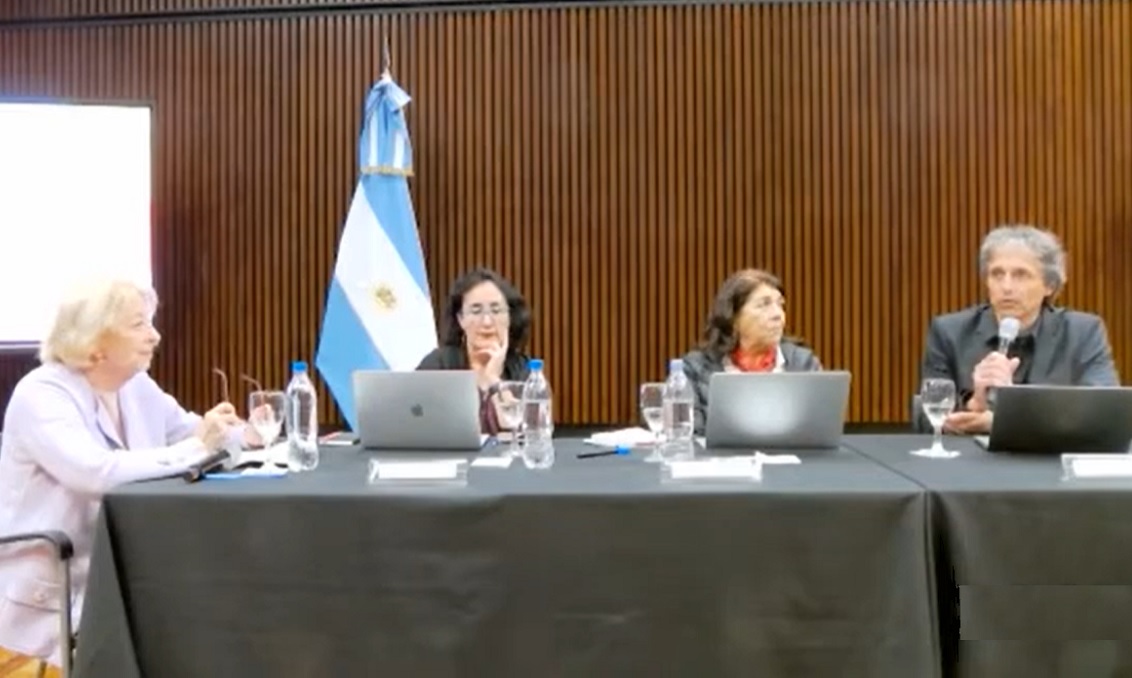GenTIC researcher Jörg Müller participated with an invited talk at the Symposium titled “La igualdad de género en las instituciones de ciencia, tecnología e innovación y educación superior” [“Gender Equality in Science, Technology, Innovation, and Higher Education”], co-organized by the UNESCO Regional Chair on Women, Science, and Technology in Latin America and the National Program for Gender Equality of the Argentine Ministry of Science, Technology, and Innovation.
The event took place on September 18, 2023, in Buenos Aires and sparked a debate on the impact of gender equality policies in higher education institutions in Latin America and Europe, the development of gender training plans as mandated by the Micaela Law in Argentina, and the creation of observatories for gender-based violence prevention, among other aspects related to the analysis of gender inequalities in academic careers and the promotion of gender equity in the research and innovation system.
During his presentation, Jörg Müller introduced the work plan of the INSPIRE project, funded by the European Union and coordinated by the GenTIC team, aimed at establishing a centre of excellence for inclusive gender equality in science and innovation in Europe. The project, which involves 14 partners in various European countries and Argentina, will conduct research based on 35 case studies to determine the impact drivers and the keys to the success and failure of Gender Equality Plans. It is structured around four Knowledge and Support Hubs that will provide knowledge and tools on topics such as sustaining change, widening participation, intersectionality, and fostering innovation and change in the private sector. Jörg Müller also highlighted some of the factors driving gender segregation in academic disciplines and contributing to the loss in women’s presence from doctoral programs to the highest levels of academic careers. Among these factors, he emphasized the influence of gender stereotypes regarding innate brilliance associated with men (more than with women) and with certain academic disciplines more than others. Research findings from different countries have shown a correlation between the stereotypical beliefs that certain fields require exceptional intellectual talent and the lower participation of women in those knowledge areas.
The event was chaired by Gloria Bonder, Director of the UNESCO Regional Chair on Women, Science, and Technology in Latin America and a member of the INSPIRE research team. It featured contributions from academic experts and representatives from gender departments at Argentine universities, including Florencia Rovetto from the National University of Rosario, Ana Quaglino from the University of Buenos Aires, Gisela Spasiuk from the National University of Misiones, and Alejandra Ciriza from the National University of Cuyo.
Additionally, representatives from science and technology organizations, such as Ana Franchi, President of the National Council for Scientific and Technical Research (CONICET); Adriana Serquis, President of the National Atomic Energy Commission (CNEA); Celeste Saulo, Secretary-General of the World Meteorological Organization (WMO) and head of the National Meteorological Service (SMN); and Nacira Belén Muñoz, Vice President of the National Institute of Agricultural Technology (INTA), delivered presentations. Among the political figures, the event concluded with a closing speech by Daniel Filmus, the Argentine Minister of Science, Technology, and Innovation.
The symposium’s video is available on the YouTube channel of the Argentine Ministry of Science, Technology, and Innovation. Watch Jörg Müller‘s presentation about INSPIRE starting at minute 07:41:53 below:
Funded by:
GenTIC’s participation in this event is part of the 2021-SGR-1032 project, funded by the Department of Research and Universities of the Government of Catalonia.

Related links
News about the event on the website of the UNESCO Regional Chair on Women, Science, and Technology in Latin America: Simposio – La igualdad de género en las instituciones de ciencia, tecnología e innovación y de educación superior: avances, reflexiones y propuestas.
